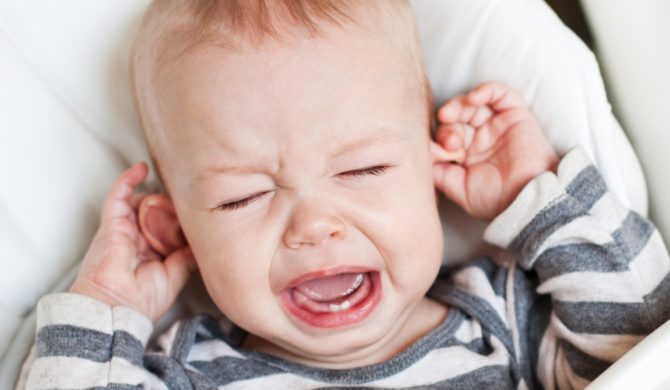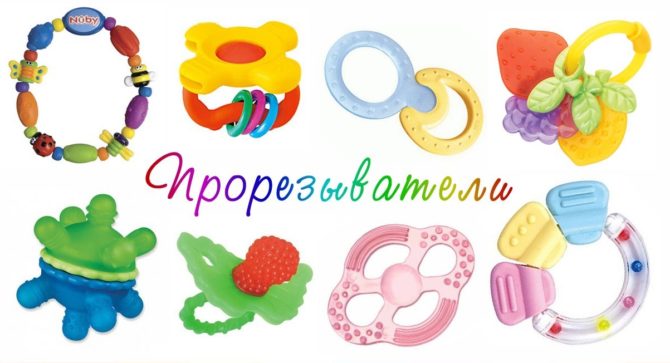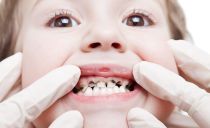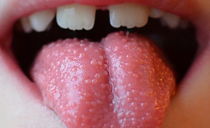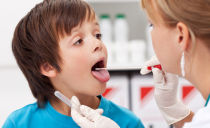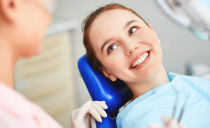Coughing and runny nose in teething in children: symptoms, causes, how to treat
The appearance of the first teeth in a baby is often accompanied by various symptoms, among which one can distinguish a runny nose, fever, cough when teething in children. Often, these symptoms are not related to infection or the virus., therefore, traditional drug treatment does not give any result.
Content
- What is the difference between a cough that occurs when teething in children, from a cough provoked by a disease
- How to help a child
- How often can appear
- In which cases it is recommended to treat cough with painful eruption of deciduous teeth Komarovsky
- Is there a cough when teething is a symptom of infection
What is the difference between a cough that occurs when teething in children, from a cough provoked by a disease
The mucous membranes of the upper respiratory tract are located in close proximity to the oral cavity, as well as to the gums, so any changes that occur in the mouth can trigger the appearance of snot and cough.
A runny nose and cough when teething do not require therapy if the baby is observed:
- swelling, hematoma, redness of the gums;
- increased salivation;
- excessive tearfulness, irritability, poor sleep;
- digestive upset;
- refusal of food;
In addition to reducing appetite, the baby may refuse to use the usual foods, as chewing causes him discomfort and even pain. In this case, it is advisable to switch to grated food (cream soups, mashed potatoes, yoghurts).
- frequent sneezing
- diarrhea;
- increase in body temperature;
- sipping ears. Many children with the appearance of toothache begin to rub their cheeks, ears;
- the baby begins to crawl into the mouth with handles, poke various objects there and gnaw them intensively.
It is important at this moment to offer the baby suitable toys, for example, from environmentally friendly rubber, plastic or silicone.
But if the symptom is not associated with an infectious or viral disease, the child has a calm, unobstructed breathing, the throat remains clean and without ulcers, and the discharge from the nose is light, transparent, and watery.
The main reason for the appearance of cough is excessive salivation, taking into account that the baby does not yet know how to cough. Once in the larynx, saliva irritates its walls, thereby causing a cough. Coughing fits can be accompanied by the appearance of irritation on the chin and cheeks, as the saliva produced also gets to these areas.
Unlike respiratory, both dry and wet cough when teething is short - two to four days. If after this period or if the tooth has already managed to erupt, and the baby continues to cough, he has shortness of breath and wheezing, it is necessary to consult a pediatrician for further examination for the presence of a cold or SARS.
How to help a child
When a wet cough occurs during teething, the actions of parents should, first of all, be aimed at relieving pain. There are several ways to do this. First of all, you should offer the baby a chilled teether, with which the baby can massage the inflamed gums. On sale there are special brushes for gums, which mom can put on her finger and massage the swollen area.
The saliva that gets on the cheeks and chin causes irritation, redness, and itching, so you need to wipe it in time. If necessary, inflamed areas of the skin must be treated with a softening baby cream or special ointment.
If the cough is accompanied by a runny nose, everything possible should be done so that the snot does not accumulate in the nasopharynx and does not dry out. To do this, it is enough to regularly rinse the nose with saline and aspirate the accumulated mucus with a syringe or nasal aspirator.
In the supine position, the head of the baby should be slightly raised, due to this sputum will freely flow down the larynx and not irritate its mucous membrane.
It is necessary to ventilate the room as often as possible, make sure that the air in the room is humid and offer the baby a drink (tea, compote, ouzar, decoction of herbs, juice). So sputum will not dry out and provoke the development of inflammatory processes.
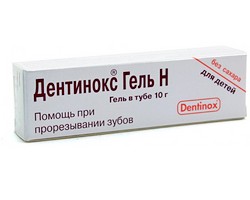 For analgesia, it is recommended to use special gels (preferably with a cooling effect), and if the infant continues to be capricious anyway, painkillers (syrups, drops, suppositories) with a wide spectrum of action. So that the child can fully relax, medications should be given immediately before night or daytime sleep.
For analgesia, it is recommended to use special gels (preferably with a cooling effect), and if the infant continues to be capricious anyway, painkillers (syrups, drops, suppositories) with a wide spectrum of action. So that the child can fully relax, medications should be given immediately before night or daytime sleep.
Parents should do everything necessary to maintain the baby’s immunity and improve their health. The baby receives everything she needs with her mother’s milk, but the diet of older children should be balanced and include various vegetables, fruits, berries, which contain different vitamins and useful elements.
How often can appear
Teeth growth is a process that even adults often experience not easily, as it can be quite lengthy and painful. It is not surprising that the first tooth, when it appears, often causes great discomfort in the crumbs.
Most often, the second and subsequent teeth erupt less painfully, but some babies also suffer during the growth of fangs and other deciduous teeth.
Most often, the baby begins to cough on his teeth:
- in the period from 4 to 6 months, when the first incisor begins to climb;
- closer to one and a half years when teething fangs.
The dentition can form before the age of three, so parents should prepare for the fact that a cough can periodically happen not only in the first year of life, but also for a long time.
In which cases it is recommended to treat cough with painful eruption of deciduous teeth Komarovsky
Dr. Komarovsky shares the opinion of other doctors that tooth growth can trigger a fever and a wet cough. However, he does not recommend immediately attributing these symptoms in teething babies to teething, since in children of the first year of life this process often coincides with the onset of a viral disease. First of all, you should contact your pediatrician for help if:
- the child continues to cough both night and day;
- a wet cough on the teeth of a child is accompanied by fever, fever (Komarovsky recommends taking the baby to a pediatrician if the temperature has been kept above 38 ° C for a long time);
- wheezing appeared;
- snot acquired a yellow or greenish tint;
- the child refuses to drink and eat.
Is there a cough when teething is a symptom of infection
Many parents wonder if coughing with active teething in babies can be a symptom of an infection or a cold. And this makes sense, because at the time when the first tooth begins to climb in infants, they immunity weakens, and catch a viral disease is not difficult. That is why many pediatricians recommend, during the period when the cutting of the first tooth occurs, to give immunostimulating drugs that activate the defenses of the growing body.
Thus, there is no definite answer to the question of teething and coughing and runny nose and whether something needs to be done. Parents during the period of tooth growth need to have a lot of patience and be prepared to pay more attention to their crumbs.

